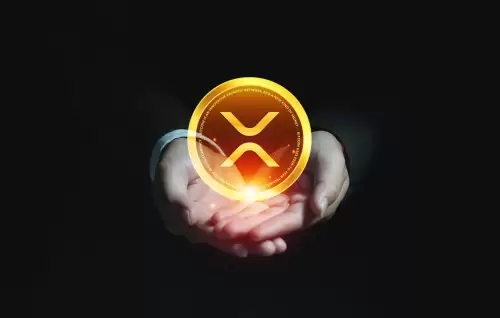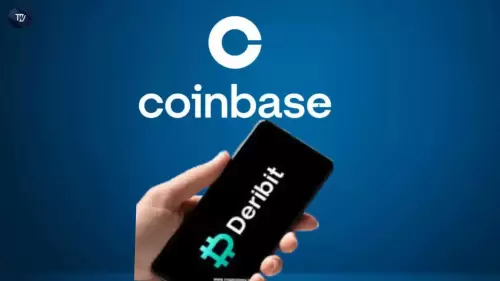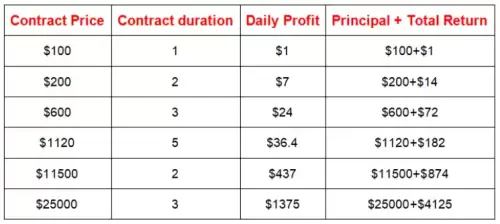 |
|
 |
|
 |
|
 |
|
 |
|
 |
|
 |
|
 |
|
 |
|
 |
|
 |
|
 |
|
 |
|
 |
|
 |
|
'Jambo Phone' sells 710,000 units in just one year. Partnership with US exchange Coinbase

James Zhang, the CEO of Jambo, a Congolese Web3 startup, had firsthand experience with the difficulties of Africa's financial infrastructure during his teenage years.
"I attempted to send money from a Congolese bank to a friend in Ghana, and encountered three obstacles: lengthy lines, exorbitant fees, and interminable delays."
These experiences led CEO Zhang to conclude that there must be an alternative to the existing financial system, as sending money to another country should not be this complicated.
Jambo was founded in 2021 by CEO Zhang, who encountered Bitcoin (BTC) during a lecture while studying computer engineering at New York University.
"This lecture sparked my interest in virtual assets, and by the time I graduated, I was convinced of the future of virtual assets," said CEO Zhang.
He subsequently managed a virtual asset-based fund for four years, but his desire to contribute to Africa's financial infrastructure remained unfulfilled.
"I became interested in virtual assets because I saw the potential to improve Africa's financial infrastructure," stated CEO Zhang, "and I believed that investing alone couldn't fully utilize the potential of virtual assets."
He eventually decided to return to his home country, Congo, and establish Jambo in 2021.
Unlike other Web3 startups, CEO Zhang chose to focus on hardware (HW).
"The basic obstacle to onboarding virtual assets is that this field is complex and lacks user-friendly tools," explained CEO Zhang, "That's why I decided to create mobile devices with higher accessibility rather than just developing software (SW)."
Jambo secured $30 million (approximately 44 billion won) in Series A funding in 2022.
The Series A investment was led by virtual asset venture capital (VC) Paradigm, and included major investors such as Hashed, Delphi Ventures, and Pantera Capital.
The company's valuation at the time was $200 million (about 300 billion won), an achievement reached approximately a year after the company's founding.
Investors were drawn to the potential of emerging markets, particularly Africa's vast potential for growth in the virtual asset market.
"75% of Africa's population of 1.4 billion are young people under the age of 35," said CEO Zhang, highlighting the potential for markets centered on new technologies like Web3 and blockchain.
"Africa has the highest proportion of young people in the world, and about 50% of the population cannot properly access banking services," explained CEO Zhang, adding that the explosive increase in mobile device usage in Africa over the past decade also played a significant role.
There are also increasing cases of using virtual assets as a 'hedge against inflation' due to currency instability.
"In countries with high inflation rates such as Argentina and El Salvador, virtual assets are sometimes used as a means of livelihood," said CEO Zhang, adding that investors empathized with the practical need for virtual assets in emerging markets.
Jambo used the investment to launch the Web3 smartphone 'Jambo Phone' last year, collaborating with the blockchain network Aptos to enhance usability.
The Jambo Phone comes pre-installed with applications (apps) necessary for virtual asset transactions, such as wallets, and also provides their self-developed artificial intelligence (AI) service 'JamboGPT'.
The device is priced at $99 (approximately 140,000 won), which is more than half cheaper than competitor products like Solana Seeker ($500).
"The low price is a strategy to increase blockchain accessibility in emerging markets such as Africa," said CEO Zhang, adding that they secured a large supply chain in China to lower hardware prices.
The results are already visible. As of this month, Jambo Phone has sold over 710,000 units in 128 countries, just one year after its launch.
Thanks to this sales performance, Jambo now operates branches in six African countries, including Kenya, Ghana, and Nigeria.
"Africa, Latin America, and Southeast Asia, where smartphone penetration and bank usage are relatively low, are Jambo's target markets," said CEO Zhang, adding that they plan to open offline stores in several countries, including Brazil and Indonesia, over the next 2-3 years.
The 'expansion work' of the virtual asset ecosystem centered around Jambo Phone is also steadily progressing.
First, Jambo signed a partnership with the US virtual asset exchange Coinbase at the end of last year to increase the utilization of on-chain services.
Jambo also issued its own token, Jambo (J), the day before (22nd). Jambo Token is listed on the global virtual asset exchange OKX.
CEO Zhang cited 'distribution' as Jambo's vision.
"Jambo's target audience is potential customers in emerging markets who need virtual assets but are not familiar with them," said CEO James, adding that the long
Disclaimer:info@kdj.com
The information provided is not trading advice. kdj.com does not assume any responsibility for any investments made based on the information provided in this article. Cryptocurrencies are highly volatile and it is highly recommended that you invest with caution after thorough research!
If you believe that the content used on this website infringes your copyright, please contact us immediately (info@kdj.com) and we will delete it promptly.
-

- Wellgistics Health Integrates XRP Into Its Network as Treasury Reserve and Real-Time Payments Infrastructure
- May 09, 2025 at 02:25 pm
- Wellgistics Health Inc. (NASDAQ: WGRX), a pharmaceutical-distribution and healthcare-infrastructure company, will integrate the distributed-ledger–based digital asset XRP into its network as both a treasury reserve and a real-time payments infrastructure.
-
![Sei [SEI] Blockchain Proposes to Drop Cosmos Compatibility and Focus on Ethereum's EVM Sei [SEI] Blockchain Proposes to Drop Cosmos Compatibility and Focus on Ethereum's EVM](/assets/pc/images/moren/280_160.png)
-

-

- Renewed momentum in the crypto market is drawing investor attention, with Bitcoin nearing the $100,000 mark
- May 09, 2025 at 02:15 pm
- This surge, triggered by comments from U.S. President Donald Trump and further supported by reports from major outlets like the New York Times and BBC, has injected optimism into the digital asset space.
-

- Audacious $1,000 Price Prediction for XRP Stirs Discussion Within the Crypto Community
- May 09, 2025 at 02:15 pm
- While providing no specific timeframe, the poster anchors this ultra-bullish prediction to XRP's historical behavior, citing growth opportunities that sometimes defy conventional market logic.
-

- Dogecoin (DOGE) Is Capturing the Attention of Traders and Analysts, Targeting a $1 Price by August 2025
- May 09, 2025 at 02:10 pm
- In 2025, the cryptocurrency has shown remarkable potential, and experts are predicting that Dogecoin could see a significant rally, possibly pushing its price towards the $1 mark by August.
-

-

-























































![Sei [SEI] Blockchain Proposes to Drop Cosmos Compatibility and Focus on Ethereum's EVM Sei [SEI] Blockchain Proposes to Drop Cosmos Compatibility and Focus on Ethereum's EVM](/uploads/2025/05/09/cryptocurrencies-news/articles/sei-sei-blockchain-proposes-drop-cosmos-compatibility-focus-ethereum-evm/image_500_300.webp)





